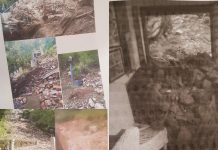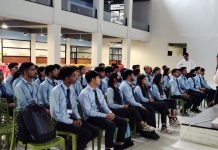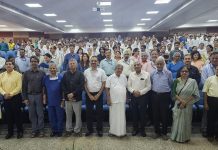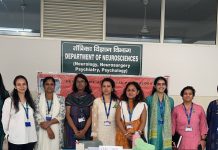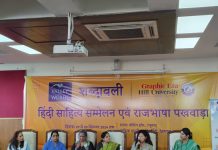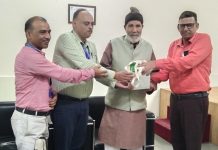Dateline Denmark: ‘I have been praying God for her to find a new job. If she has a job, I have a job,’ is a statement of a Nepali nanny who is taking care of an infant of a professional working with Tripadvisor, who lost her job because of the mass lay-off in the company, as the company operates in travel domain and practically making no revenues during the lockdown. Thus, it is not only the company (employer) and its employees that are the victim of the current lockdown, the chain extends much farther, knocking down the jobs of many more in the chain. Several people around the world have lost their jobs or are on the verge of losing their job. Net result is an economic crisis that has engulfed the whole world.
With the Covid-19 pandemic spreading its tentacles everywhere, lockdowns have been implemented in several countries since March 2020. Schools, colleges, universities, offices, factories, libraries, fitness centers, restaurants, and many other establishments have been shut down temporarily bringing the whole world to a standstill. Strict guidelines for social distancing being circulated through various media and news channels means life is no more normal.
We can explore the Coronavirus outbreak and its impacts from many angles. It has adversely affected mankind economically, socially, physically, and psychologically. There is no aspect of life that is not affected by it. The attack on health is direct. Human beings are feeling helpless and scared. Looking at the rising statistics of death every day is heart-wrenching. Politics has lost direction, societies have lost their identities, employment has reached its lowest, businesses are collapsing, travel and tourism have lost its meaning, restaurants and cafeterias look things of past. Where feasible, some organisations including the education sector, have tried to keep the wheel moving through ‘work-from-home’ remote learning. Everyone has been affected by the Covid-19. Some lost their jobs and livelihood, some even life. Almost everyone lost their freedom to move and socialize, the way they had known it. Travels have been cancelled, mauling vacations, family visits, and official trips in its stride. Marriages have been postponed, social gatherings have become a taboo, childhood is imprisoned within the house the boundaries, and so on. Yet, there is a hope.
We had to find a solution to the problem. It was not necessary to have perfect solution but something that could stop a bad from turning into the worst. In such a situation, many institutions went online. Education world also opted for remote education in many places. For schools, providing meaningful education to the children remotely and keeping them positively engaged was a challenge. Many schools started online classes for their students, and in some cases students found the online classes quite interesting, resulting in more than 80% presence in the online classes. Students were being taught smoothly online to the students, that helped cover their syllabus. How long the interest would be possible to retain is something that time only can tell.
This type of technology and learning is however not new. Exchanging information electronically has been in practice for long but its application to teaching is a new learning for many of us and it helped us to change our traditional methods quickly.
There is no shortage of tools and techniques for teachers for use in their online or distant teaching. There is an extensive list of digital tools, apps, and platforms that teachers can use. Full benefits of these are however possible only in the institutions where required IT infrastructure exists. In my North Zealand International school or in some schools, online classes on digital platforms were started for students as soon as the lockdown started, which proved to be a boon for students in the current circumstances. There is an overwhelming list of digital platforms and some popular platforms include Microsoft Teams, Zoom, Google Meet, GoToMeeting, GoToWebinar etc.
In this era of digitalization, many schools are using digitized study materials, digital platforms and software/apps including PowerPoint, Excel etc. After the lockdown, the use of digital platforms and apps have been increased exponentially. The far-reaching vision of the school leaders, who gave importance to information technology, and prepared students to work on digital platforms came handy at this crucial time. My school and many schools are using digital platforms such as Microsoft Teams, Zoom, Firefly etc., using pre-recorded lectures to deliver the education to the students, and marking and assessing their assignments online. The faculty and staff are having online meetings to discuss various issues and modify / develop the curriculum for online learning. Not only teaching is being done online, but counseling of students is also happening online. Another development is that interviews and registration of new students are also being done online.
The school education is being delivered digitally at some level in most of the schools. Many teachers indicated that with online teaching their personal contact with the students has increased. In the classroom they teach everyone collectively, but in distance teaching, students would call them, send emails, and contact them on the digital platform. This has created a greater bond between teachers and students. During the lockdown, some students developed their talent in new areas. I found some students are thriving during the lockdown, for example, exploring about Coronavirus, developing websites, generating awareness about Corona, writing science fiction etc. On the other hand, some students seems to be feeling depressed, and could not adapt to online learning. They are missing their schools and friends and have become inactive.
However, this digitization is not limited to the education world only. Online interviews, online exercises, online yoga-meditation, online poetry, story writing etc are being organized. Webinars are substitutes for meetings and conferences being organized for sharing new knowledge, literary events, and activities. The online world has reduced the physical distance by bringing together participants virtually from all over the world.
Undoubtedly the Covid-19 pandemic has put us into a period of temporary isolation for sometime. It has given wings to new ideas as well, but for others, it is a depressing situation, while for some it is an opportunity.
Not only school children, grown-ups are developing various skills. Confined to home, they are honing skills in cooking, gardening, painting, knitting, photography etc., for which they never found time in their busy schedule. In an unusual situation like lockdown, the damage is irreparable but it would not be true to say that it is a void of opportunities. These lines of 19th century English poet Robert Browning inspire us – The worst turns the best to the brave.
There is a lot to learn and understand. A learning from all this is a realization that the teachers should include digital learning in the everyday normal teaching also. It can complement the classroom teaching. Many organisations, particularly from IT industry have found that productivity has increased and they do not need fancy offices as a large number of their employees can work from home. The governments have found that they can digitally connect with their citizens.
Another positive side is impact on environment. With reduction in economic activities, pollution levels, local as well as global, have come down. Reduction in local pollution is much more visible everywhere, with clean air and clean water visible, which governments were not able to accomplish in many countries despite spending large amount of money. Water sources – rivers, ponds, lakes etc. have started looking clean. The nature has flourished with animals coming out in open spaces left behind by human beings. Reduced carbon dioxide emissions, that was crucial to prevent global warming, suddenly looks feasible with global community getting breathing time to move further on this.
Generalist, Thomas Loren Friedman wrote, The World is flat,’ in 2005 – in which he brought out the importance of the internet which has revolutionised the world by making information available to rich and poor in the far corners of the world. Now, the world is much more flatter than in 2005 with access to a variety of tools to everyone for collaboration, marketing, and dissemination through social media (Facebook, Twiter, Instagram), Zoom, GoTOWebinar, etc.
Now that several countries are gradually easing or getting out of the lockdown, there is uncertainty on what can happen next. Will the world slowly recover or will there be a second wave? No one has answer to that. However, it is almost certain that life is not going to be same in the near future. Experts indicate that many things may change forever. So the world after traversing the two phases; BC and AD, may have reached a third phase- AC (After Corona).











